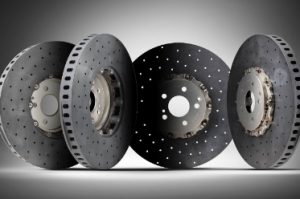Shipyard completes nuclear test rig linked to future diversification plans

Cammell Laird has completed the design, manufacture and installation of an innovative test rig that will be used in the design of future nuclear reactors.
It is aimed at re-establishing the UK as a world leader in thermal hydraulics research.
The new Thermal Hydraulic test rig, which is seven metres tall, five metres wide and 2.5 metres deep, was built for the National Nuclear Laboratory (NNL) as part of Project Faith (Fuel Assembly Incorporating Thermal Hydraulics) by experts at the Birkenhead shipyard.
The project aims to use the build of the experimental rig as a model for proving the facility’s modular construction techniques in the nuclear industry.
Jamie Willgress, project manager at Cammell Laird, part of the Project Faith team, said: “Our expertise in the block build fabrication of ships was instrumental to this project and we’ve been able to share considerable best practice from our work constructing some of the worlds’ most high profile vessels, including the RRS Sir David Attenborough and the Queen Elizabeth Aircraft Carriers.”
Cammell Laird built the flight deck for the Queen Elizabeth which was assembled at the Rosyth shipyard on the east of Scotland. The yard is investigating work in the nuclear sector, as well as the offshore renewable energy industry.
Mr Willgress added: “Modular construction will improve the delivery of nuclear projects in the future and revolutionise the way nuclear plant is constructed, so this is an incredibly important project to be part of.“
Designed to circulate water around a pipe loop, the stand alone rig enables different test sections to be installed to study the impact of flowrates and temperature on the flow regime in the geometry and workings of a nuclear reactor.
The rig will be used by scientists at the National Nuclear Laboratory to collect data that will inform future nuclear reactor design and help to deliver a more robust talent pipeline to support the UK nuclear industry.
Jacob Graham, project engineer, said: “It’s been an honour for our team to play such an instrumental role in this project and to know that our construction methodologies, processes and insights can help to drive innovation in the sector.
“This project has also given us an important opportunity to invest further in our in-house skills and supply chain relationships – both of which will be necessary to help the UK nuclear industry thrive in the future.”

The Cammell Laird rig
Design of the rig began in November 2019 with the build taking place between September 2020 and February 2021. The rig was delivered to NNL’s host facility at Workington Rig Hall in March 2021.
As part of the design and build process, Cammell Laird worked closely with electrical subcontractor Seaking for the electrical aspect of the fabrication and 11i, a start-up from the wind energy industry which produced the rig’s network of sensors.
Students from the University of Liverpool were also involved in the project and found an ingenious way to avoid COVID-induced delays to the rig’s Hazard and Operability Analysis (HAZOP) testing, by creating virtual 3D models to simulate the process in the real world.
Now, the Cammell Laird team has started work on the final part of the project which requires the design of a sodium test rig.
This project was funded as part of the Advanced Manufacturing and Materials (AMM) Programme under the BEIS £505m Energy Innovation Programme.








